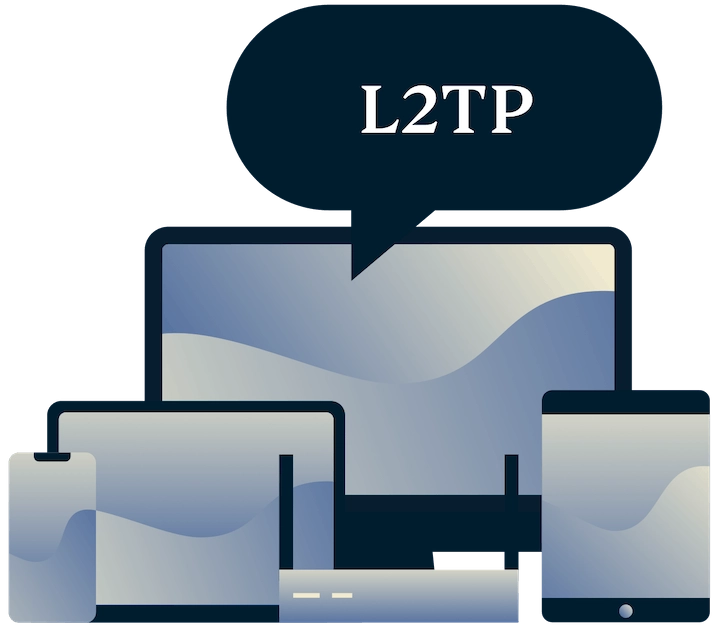What is L2TP/IPSEC?
Content of the article

L2TP — it is a tunneling protocol, which means that it creates a separate data connection. This type of security is called data in transit.
This type of security is most often used by VPNs (Virtual Private Networks). IPsec provides encryption at the network level, so all traffic passing through an IP network is protected from eavesdropping or packet spoofing by other networks.
The term "tunnel" generally refers to the entire path between two endpoints, where packets are encapsulated within other packets for transmission over various types of networks, while "transport" usually refers to only one particular channel or connection at a time between two entities.
How does L2TP/IPsec work?
Layer 2 Tunneling Protocol (L2TP) — it is a tunneling protocol used to support virtual private networks (VPNs). It does not provide any encryption or privacy by itself. Rather, it relies on an encryption protocol that is carried in the tunnel to provide privacy.
L2TP/IPsec is more secure than PPTP. L2TP/IPsec combines the best features of the two most popular VPN protocols — L2F and PPTP — without their shortcomings to provide the best VPN technology currently available.
L2TP encapsulates PPP in virtual lines that run over IP, so an IP protocol (such as IPv4 or IPv6) is required. By itself, this protocol is not secure or encrypted. For this reason, it must work on an encryption protocol to ensure privacy. This means that another protocol is "on top" of the L2TP to provide the desired security functionality.
L2TP/IPsec Benefits
IPsec stands for Internet Protocol Security, which provides exclusive benefits to the ISP, including user and control packets. IPsec itself does not have an authentication or key distribution mechanism. IPsec can only be used to provide a secure channel by encrypting and decrypting packets sent over an insecure network. IPsec combined with L2TP provides the following benefits of the VPN Tunneling Protocol:
Authentication via EAP or local user accounts for VPN clients.
Message authentication and integrity checks ensure that messages have not been tampered with and that the source is genuine.
Internet service providers can obtain encryption and decryption using symmetric session keys for a VPN connection
Mutual authentication ensures that the IPsec gateway is actually communicating with a real L2TP/IPsec client, and not with an attacker masquerading as one.
Securing private networks over the Internet (VPN) has long been a major application of IPsec. L2TP/IPsec extends these capabilities, making remote access as easy as it has become with services such as DSL and cable Internet access.